
Thyroid Gland Role
As a natural medicine practitioner, I have long been aware that lab tests do not tell the whole story. The traditional thyroid test performed at the doctor’s office serves as an example of a patient’s signs and symptoms not correlating to the test results. The thyroid gland plays a significant role throughout the body, with every cell in the body having a thyroid hormone receptor. As it happens, the number one imbalance I see, in addition to patients’ other complaints, of which most are unaware as being a concern or having an impact on their health, is hypothyroidism (Hashimoto’s disease or underactive thyroid function).
Energy Production – Metabolism
The main role of thyroid hormone is to control our energy production within the cell, essentially describing metabolism. A very important fact, the thyroid hormone controls the function of the mitochondria which in turn determines how much energy is produced from the food we eat (fat, sugar and protein). Therefore symptoms related to low thyroid function stem from a decrease in energy production.
How Does the Thyroid Gland Affect My Health?
Often referred to as the most abused gland in the body, the thyroid has earned this reputation because it is viewed as an emotional gland. Any episodes of great stress, sadness, anger, grief, lifestyle change or other stimulus can seriously burden this gland, creating an enormous nutritional need in order to keep up with the body’s demands. Hypothyroidism and inflammation of the thyroid (Thyroiditis) can be looked at as a silent epidemic; however, hyperthyroidism is quickly climbing the list of many disturbances throughout the body. 1
Hypothyroidism
The term hypothyroidism falls under several different categories, from mildly underactive to permanent conditions. Hypothyroidism was first recognized during the late nineteenth century when symptoms of swelling (hands, feet, face, and around the eyes) were observed following the removal of the patient’s thyroid gland. This is a natural occurrence due to the absence of the required hormones and substances produced by the thyroid.
Mildly Underactive Thyroid
Subclinical or mild hypothyroidism is considered an early stage of hypothyroidism. This condition describes levels of thyrotropin (TSH) starting to increase as a result of T4 levels beginning to decline. Your blood tests will still show normal levels of T4 at this stage. Your symptoms would be mild, noticing some fatigue from time to time or not at all.
Subclinical hypothyroidism is a problem area for physicians because they do not have a treatment plan in place since medications are not warranted at this stage. Rebalancing the thyroid nutritionally would be the solution. For instance our thyroid cannot make TSH without Iodine!
Primary Hypothyroidism
It is estimated that ninety-five percent of hypothyroidism cases start with dysfunction of the thyroid gland itself, known as primary hypothyroidism. The two most common causes of this condition are Hashimotto’s Thyroiditis and the medical overtreatment of hyperthyroidism (overactive thyroid).
Secondary Hypothyroidism
Secondary hypothyroidism is caused by a problem with the pituitary gland. Fortunately, these are rare cases, usually due to a pituitary tumour. In such instances, the pituitary gland stops producing thyrotropin (TSH), which results in the thyroid’s inability to produce its own hormones, causing it to shrink and become weak.
Tertiary Hypothyroidism
A related disorder of the hypothalamus is the cause of tertiary hypothyroidism (the hypothalamus part of the brain that controls the endocrine system).
Possible underlying conditions include:
• Tumor of the hypothalamus
• Radiation to the brain
• Cretinism is characterized by severe hypothyroidism that is present at birth. One of every 4,000 babies is born without a properly functioning thyroid gland, showing less than five percent of cases have a normal functioning pituitary or hypothalamus. The thyroid gland may be underdeveloped or missing. Children left untreated will become permanently dwarfed, strong probability for mental retardation and sterile. 2
• Pregnant women are another underlying cause when the mother becomes pregnant already having the condition of hypothyroidism or develops it during her pregnancy.
• Hemochromatosis is an inherited disorder characterized by abnormally high iron absorption by the intestinal tract, which results in excessive iron storage. This condition, also known as bronze diabetes, affects the liver, pancreas, heart, joints, skin, testes, and more.
Autoimmune Disorders of the Thyroid
Conditions falling under the umbrella of Thyroiditis are a common form of primary hypothyroid disease. You may be more familiar with Hashimoto’s Thyroiditis, although atrophic thyroiditis and postpartum thyroiditis are two others. In these autoimmune disorders, the cells of the thyroid gland are attacked.
About Autoimmunity
The main cells involved in thyroid autoimmunity are our T and B cells. These cells are important immune factors and enter the thyroid gland in equal numbers. The T cells are well known for their primary infection-fighting activity, identifying bacteria, viruses, and other invasive molecules. They also assist the B cells in producing antibodies.
The problem with autoimmunity, the T cells malfunction, by reregistering molecules of the body’s own cells (like the thyroid) as invaders. The B cells are immediately prompted into action producing antibodies (auto-antibodies) that have been designed specifically to attack these cells. When the body launches an attack on the thyroid, it is usually the auto-antibodies targeting the thyroid protein (thyroid peroxidase), which appears to destroy thyroid cells. 3
Hashimoto’s Thyroiditis
Hashimoto’s Thyroiditis is the most common form of autoimmune thyroid disorder in North America. Because this condition is so tied into most people’s day-to-day lives and food intake.
* How to prevent and cure Hashimoto’s can be found in my Reverse Thyroid Disease book.
Atrophic Thyroiditis
Atrophic Thyroiditis is very similar to Hashimoto’s disease with the exception of a goiter, which is normally absent.
Riedel’s Thyroiditis
Riedel’s Thyroiditis is a rare condition in which an imbalance prompts the formation of scar tissue in the thyroid gland. This scar tissue can take the form of a hard, stony mass that can become cancerous. A natural occurrence is hypothyroidism, as scar tissue develops and infiltrates healthy tissue.
Autoimmune Thyroiditis
Autoimmune Thyroiditis during pregnancy also results in hypothyroidism, describing women who develop antibodies to their own thyroid tissue. Inflammation of the thyroid follows after delivery.
During the first trimester, pregnant women who test positive for thyroid antibodies have a 30% to 50% chance of developing Thyroiditis after delivery. 4
Thyroid Surgery
If misfortune has led you to a complete (total thyroidectomy) removal of your thyroid, you will require a lifetime of thyroid hormone treatment. Even though you are taking medical treatment for this condition, patients usually experience symptoms of hypothyroidism.
Whenever possible, strive to keep one of the two lobes of the thyroid gland. This procedure is called (hemithyroidectomy) and is normally performed for benign growths but is unlikely to result in hypothyroidism unless the nutritional requirements of the thyroid are not being met.
The TSH Test: How Accurate Is It? Put a link to this article
Reference
1. About Thyroid Conditions http://www.nytimes.com/health/guides/disease/hypothyroidism/print.html
2. 4000 Babies – Miller-Keane Encyclopedia and Dictionary of Medicine, Nursing, and Allied Health, Seventh Edition. © 2003 by Saunders, an imprint of Elsevier, Inc.
3. Autoimmune diseases of the thyroid. http://www.nytimes.com/health/guides/disease/hypothyroidism/print.html
4. Thyroid Disease in Pregnancy. https://www.aafp.org/afp/2014/0215/p273.html
Copyright © 2024 – All Rights Reserved – Michelle Honda Ph.D.
Announcement
Look for my latest books “Reverse Depression Naturally” (Spring 2020) “Reverse Inflammation Naturally” (May 31, 2017) “Reverse Thyroid Diseases Naturally” (June 2018) “Reverse Alzheimers/Dementia Naturally” (Nov.2018) “Reverse Heart Disease Naturally” (Jan.31, 2017) and “Reverse Gut Diseases Naturally Nov. 2016
Where to Purchase:
Reverse Gut Diseases Naturally Nov. 2016
Reverse Heart Disease Naturally Jan. 2017
Reverse Inflammation Naturally May 2017
Reverse Thyroid Disease Naturally June 28/2018
Reverse Alzheimers Disease Naturally Nov. 2018
Reverse Depression Naturally Spring 2020
Hatherleigh Press Page Buy Book RGDN
Local Book Stores in the US and Canada
Disclaimer
While close attention was given to the accuracy of information in this article, the author accepts neither responsibility nor liability to any person with respect to injury, damage, loss or any circumstances involving alleged causes directly or indirectly related to the information in this article. The sole purpose is to educate and broaden ones awareness. This information is not meant to replace medical advice or services provided by a health care professional.





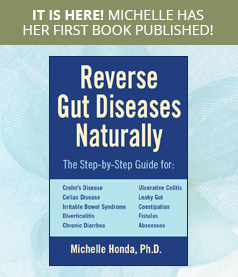

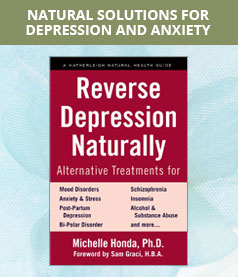
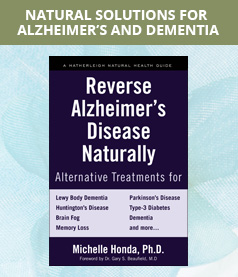
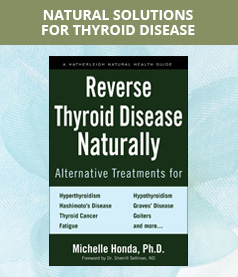

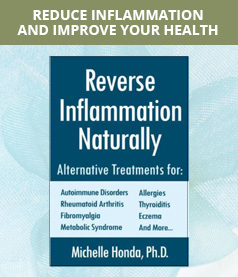
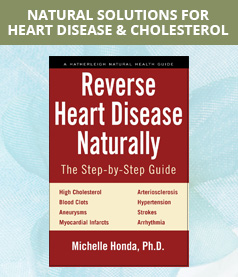
Follow Us!